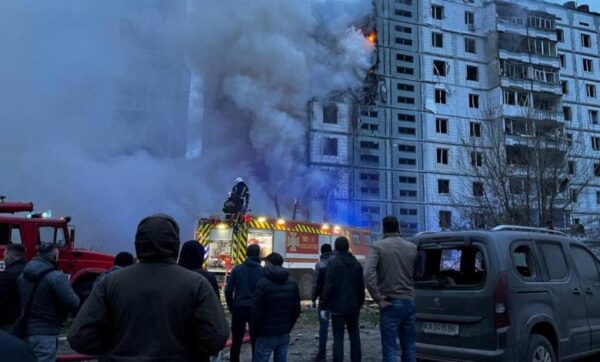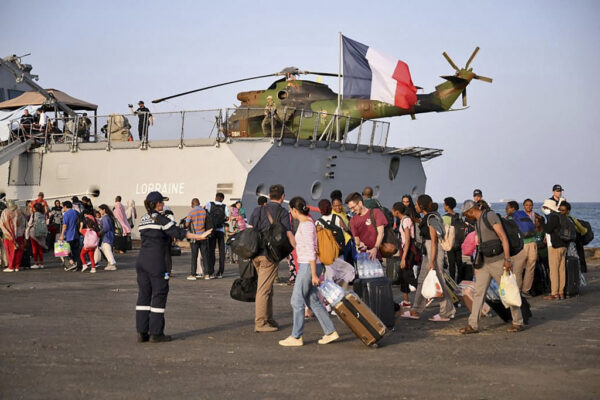
In the villages that once bore the brunt of Afghanistan’s front-line fighting, the Taliban victory has broken a cycle of air attacks, gun battles and funerals.
The group’s takeover of Kabul and the sudden collapse in August of the United States-backed government shocked the world and upended the freedoms of Afghans, which were particularly enjoyed by the urban middle class.
But away from main cities, where little of the international aid worth billions of dollars ever reached, many believe the Taliban’s rule could bring a stop to the fighting and the hope for an end to corruption.
“I would give everything for the Taliban,” said 72-year-old Maky as she prepared cotton fibre in her hardened hands with a group of other women in Dashtan, a remote farming settlement in northern Balkh province.
“Now there is no sound of shooting. The war is over and we are happy with the Taliban.”
A US-led invasion removed the Taliban in 2001, which led to 20 years of military occupation by NATO forces.
A democratic government was restored, women were once again allowed to work and study, and a vocal civil society was rebuilt.
But corruption and vote-rigging allegations plagued government institutions, justice was slow and ineffective, and foreign troops were tainted by accusations of colluding with warlords, abusing Afghans and disrespecting local customs.
Thousands of civilians were killed or injured each year in attacks by the Taliban and air raids by US-led forces, with progress largely limited to cities as the worst of the war raged in rural areas.
Mohammad Nasir earns 200-300 afghanis ($2-3) a day at a cotton field on the outskirts of the historic town of Balkh, yards from the ninth-century Noh Gonbad Mosque, believed to be Afghanistan’s earliest Islamic building.
He weighs the white crop from a scale hanging on a tree, before stuffing it into huge orange bags, ready for collection.
Nasir said he did not support either side in the conflict that raged through most of his life.
“I was against both of them because I wanted peace,” said the 24-year-old from nearby Zawlakai village. “I didn’t want to fight.”
At another plantation nearby, 26-year-old Farima is among dozens of women and children harvesting cotton in the sunshine, wrapped up warmly against the wind.
During the war, she avoided leaving her home, afraid of being injured.
With the cotton-picking season ending, she is now working on the land each day with her daughters Asma, 10, and Husna, 9, and son Barktula, aged just three.
For her, life since the Taliban takeover remains unstable and exhausting. While the end of the conflict is a relief, hardship and insecurity endure.
“What change has come? We are still hungry and there are no jobs,” she says.
The pickers in the fields in Dawlatabad district are paid about 10 afghanis (11 cents of a US dollar) per kilogram, each making 200 to 300 afghanis.
A looming economic disaster means the Taliban’s window for holding on to loyalty may be short.
Essentials such as cooking oil, rice and tomato paste now cost a lot more after the national currency, the afghani, depreciated and the country’s reserves were frozen abroad.
Afghanistan is now home to one of the world’s worst humanitarian crises, with more than half of Afghans expected to suffer “acute food insecurity” this winter, as a severe drought devastates the country.
In neighbouring Samangan province, where 93 percent of the 440,000-strong population lives in the countryside, Noor Mohammad Sedaqat grows onions, carrots, okra, tomatoes and pumpkins.
In the months before the seizure, he was caught in the crossfire of heavy fighting between government forces to the west and the Taliban to the east.
On one occasion a group of farmers was mistaken for Taliban by a local militia, and narrowly avoided being killed, he said.
Sedaqat’s situation on the front line meant he dared not show allegiance to either the Taliban or the government.
“If we went to one side, the other side would beat us, and vice versa,” he said.
The 28-year-old father of nine, who works a plot of land in Yakatut village, about 20km (12 miles) from the provincial capital Aybak, says the new government has cut crime and corruption.
But his earnings are plummeting. He hitches a ride to Aybak every one to two weeks to sell his produce at the bazaar, and hopes to make 6,000 to 7,000 afghanis ($60-70) per trip.
But on the morning he spoke to the AFP news agency, he made just 3,000 afghanis for 10 to 12 days’ work.
“If it goes on like this, we can’t be happy with the Taliban,” he said, as his children snacked on sunflower seeds.
“What can we do? How can we survive?”
Sixteen members of Sedaqat’s family sleep in a one-room hut made of stone and mud measuring six metres by three metres (20 feet by 10 feet).
He hopes the Taliban will gain international recognition and trade with Afghanistan’s neighbours will grow.
“If they look after the poor people we will be satisfied, but not if they trample on us,” he said.









